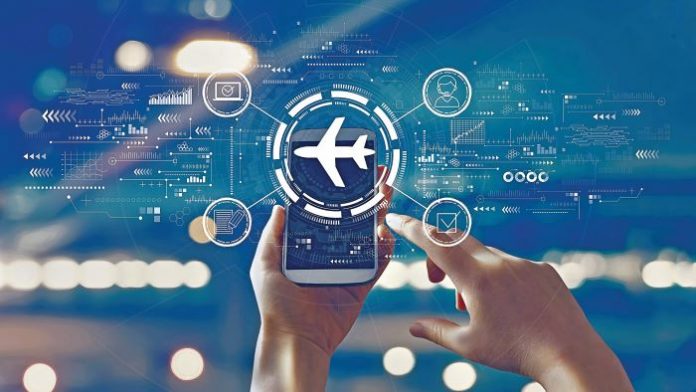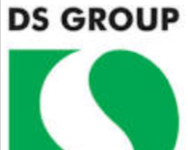A pivotal force in reforming airline retailing, NDC offers personalised content, eliminating hindrances posed by traditional GDS, says Dr Sanjay Pai.
New Distribution Capability (NDC) is a standard that helps airlines and travel agents communicate efficiently. Developed by the International Air Transport Association (IATA). NDC aims to improve the airline retailing process by enhancing content distribution, improving personalisation and enabling direct interactions between airlines and travellers.
Evolution of airline distribution
In the 1990s, airline tickets were primarily sold through Global Distribution System (GDS) such as Amadeus, Sabre and Travelport. Airlines paid GDS providers a fee per sector booked, and GDSs compensated travel agents for making bookings. In 2012, IATA introduced NDC as a new XML-based data transmission standard, enabling airlines to distribute content dynamically and independently of traditional GDSs. Unlike the legacy EDIFACT technology used by GDSs, NDC leverages APIs to provide a superior retailing experience.
Currently, the transition is well underway with major airlines implementing NDC and technology partners providing NDC-based solutions. Airlines such as Lufthansa, British Airways and American Airlines have embraced NDC, offering exclusive content and incentives to the travel agents or customers for direct bookings.
Benefits of NDC
NDC empowers airlines with the following advantages and benefits:
- Better content delivery: Airlines can provide more customised content, including seat maps, fare bundles and rich experience.
- Real-time distribution: Airlines can offer real-time booking of ancillary services such as Wi-Fi, meals and baggage.
- Increased revenue control: NDC enables airlines to control pricing strategies and avoid excessive GDS fees.
- Seamless retailing experience: Airlines can create dynamic offers and personalised promotions, which enhances overall user experience attracting the right audience.
Travel agents enjoy the following benefits provided by NDC:
- Enhanced customer attraction: Access to richer content helps travel agents retain customers.
- Increased revenue opportunities: Agents can offer more attractive fares and upsell ancillaries.
- Seamless operations: Travel agents can search, book and manage content in a single flow.
Benefits received by travellers from NDC include:
- Personalised offers: Travellers can save preferences to receive tailored flight and service recommendations. For example, corporate travellers may have Wi-Fi included in their company’s travel agreement, while a leisure traveller sees an additional cost.
- Faster service from travel agents: Agents can book preferred seats, add baggage and customise services without leaving their booking system. Instead of booking extras on airline websites, agents can do it within their GDS via NDC.
- Visual representation of offerings: High-quality images and videos provide a better understanding of seating, amenities and lounges.
- Transparent fare comparisons: Travellers can compare flights beyond just price and schedule. For example, comparing Air France and British Airways may involve evaluating lounge access, mileage earnings and comfort features.
- Improved booking for low-cost carriers: NDC enables low-cost carriers to sell via travel agents, increasing visibility and access. For instance, a low-cost airline without GDS presence can distribute fares through NDC-enabled agencies.
Challenges & industry adoption
Why is everyone not using NDC yet?
- High implementation costs: Higher technological investment is required for airlines and travel agencies.
- Lack of standardisation: Different versions and levels of NDC exist, making adoption complex.
- Resistance from GDSs and traditional players: Some stakeholders are slow to transition due to existing financial structures.
- Airlines charging GDS surcharges: Airlines such as Lufthansa, British Airways, Iberia and Air France-KLM have introduced GDS surcharges to incentivise NDC adoption.
Future trends
The continued growth of NDC will be shaped by several trends:
- Industry-wide adoption: More airlines, agencies and technology providers will integrate NDC.
- Retailing evolution: Airlines will transition towards offer and order management systems, replacing traditional ticketing models.
- AI-driven personalisation: AI and big data will enhance NDC’s ability to create tailored travel experiences and packages.
- Hybrid GDS and NDC solutions: GDS providers will blend traditional distribution with NDC capabilities.
- Improved standardisation: IATA and industry stakeholders will refine NDC standards for easier adoption.
As the NDC ecosystem matures, the future of airline distribution will be more dynamic, customer-centric and technologically advanced, shaping the next era of travel retailing.
Sources: Lufthansa Group 2022, phocuswire.com, www.businesstravelnews.com, BA NDC, centreforaviation.com
(The views expressed are solely of the author. The publication may or may not subscribe to the same)
Agents can book preferred seats, add baggage and customise services through NDC without leaving their booking system
NDC enables low-cost carriers to sell via travel agents, increasing visibility and access
Case Studies: NDC Success Stories
Lufthansa Group
Implemented an NDC surcharge in 2015
By 2022, over 50% of its indirect bookings used NDC technology
British Airways
Pioneered NDC adoption with exclusive discounts
NDC bookings increased by 30% in 2021 compared to traditional channels
American Airlines
By 2023, over 40% of sales processed via NDC
The airline emphasised exclusive content for NDC-enabled channels
_______________________________________
IATA industry data
Forecasts that by 2025, 60% of airline bookings will be made through NDC-powered channels













